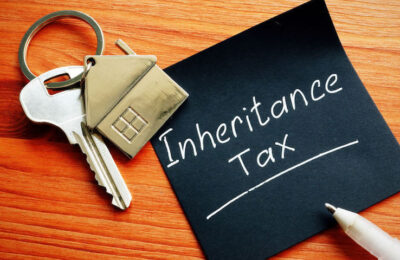It has been a turbulent couple of years for landlords in the private rental sector. Along came the COVID pandemic. This saw many tenants face financial hardship, sometimes meaning they couldn’t pay their rent. It also saw a moratorium on evictions, meaning some landlords saw their incomes dry up. Given that BTL mortgages are also now considerably more expensive than they were (much higher interest rates) and income is losing value (growing inflation), many landlords are telling themselves that they really must increase rent on their buy-to-let properties.
More reasons to increase rent
A while ago, there was an interesting column by ‘The Secret Landlord’ in the Daily Telegraph. Entitled ‘We need to talk about charging more rent’, it outlined other pressures faced by landlords. These included:
- Increased cost of insurance
- Labour rates that are some 25% higher
- Soaring cost of materials
- Cost of new rules such as electrical certificates
- Proposed licensing measures (i.e. a new national licensing scheme)
- Tax changes
The author also pointed to some of the ongoing costs you incur as a landlord. For example, kitchens and bathrooms eventually need replacing. Boilers only last about a decade, and sometimes less. Then there are issues such as damaged roofs, chimneys, fences and other external items.
Surely increasing rent is a no-brainer?
You would certainly think, given the current pressures on buy-to-landlords, that raising rents would be a no-brainer.
However, the fact remains that we are facing a cost-of-living crisis. Inflation is at its highest level since 1992. Energy prices are rocketing to unprecedented levels and petrol and diesel remain eye-wateringly expensive. In other words, tenants are feeling the pinch just as much as landlords – and in some cases more.
For this reason, some people are calling for landlords to show compassion when setting rent rises. That said, this is a message that many councils and housing associations may have chosen to disregard. And if social rents are going up, surely it’s only fair that private rents do too?
So, should I increase rent?
Whether you increase rent is up to you – obviously with the massive increases in mortgage interest rates of late, Landlords cannot afford to have tenancies running as losses. If your tenants are able and willing to pay extra, then it can give you extra margin. On the other hand, you run the risk of losing some tenants. That means you’ll have no income while the property is void, plus you’ll face the expense of any upgrades necessary before letting it again.
The best approach is to undertake an annual rent review. Factors that you can take into account include:
- How long a tenant has been with you
- When their last rent increase was, and how much it was
- How well the property is being looked after
- Whether there are (or have been) any rent arrears
- How much average rents have increased over the last year
You can then contrast that with how much it would cost you to re-let the property. This may be quite a high figure, especially if you have to invest in improvements. The Secret Landlord believes that current (good) tenants are worth 10-15% discount below market rent – largely because they are not getting a fresh property. That said, he (or she) has increased rents for their properties between 4-12%, although they are still cheaper than the market rate.
A balanced decision
In an ideal world, landlords would have the margins and tax breaks they used to have. This would give them more operating profit, which would allow them to make necessary investments without having to push up rents too high. However, rent increases are now one of the few ways that landlords can ensure their portfolio remains a worthwhile investment. The trick is to balance your situation with those of your tenants – especially if those tenants pay on time and keep your property in good order.
If you’re still unsure about whether a rent rise is a good plan, it’s wise to take an objective view of how well your portfolio is performing. As the Accountants for Landlords, THP can help you do this – and advise you on next steps. So, if you’d like friendly, specialist advice, please get in touch today.
About Jon Pryse-Jones
Since joining THP in 1978, Jon Pryse-Jones has been hands on with every area of the business. Now specialising in strategy, business planning, and marketing, Jon remains at the forefront of the growth and development at THP.
An ideas man, Jon enjoys getting the most out of all situations, “I act as a catalyst for creative people and encourage them to think outside the box,” he says, “and I’m not afraid of being confrontational. It often leads to a better result for THP and its clients.”
Jon’s appreciation for THP extends to his fellow team members and the board. “They really know how to run a successful business,” he says. He’s keen on IT and systems development as critical to success, and he continues to guide THP to be at the cutting edge and effective.
Read More











